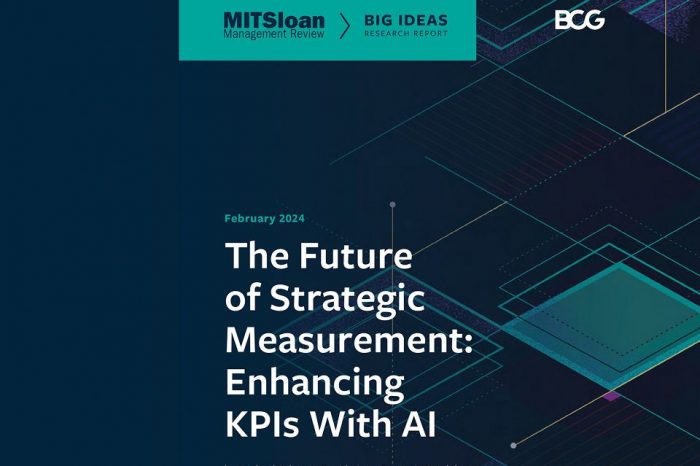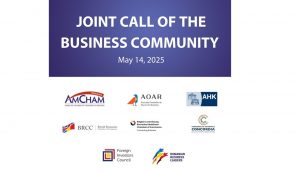Boston Consulting Group Study: The Great Paradox of Innovation

- BCG’s 18th annual innovation study reveals that “innovation readiness” has declined by 17 percentage points in companies from 2022 83% of companies consider innovation a top three priority, but only 3% are ready to achieve their innovation goals
- More than half of executives cite unclear strategy as one of the top three challenges for their companies
- Although 86% of organizations are experimenting with GenAI for innovation, only 8% are applying GenAI at scale.
Today, more and more companies see innovation as critical to success, but fewer are prepared to do it. This contradiction is the conclusion of the Boston Consulting Group’s (BCG) annual innovation study, now in its 18th edition.
Full study here
This year, 83 percent of the 1,000 executives surveyed—a record percentage—listed innovation among their top three priorities, but only 3 percent of companies met BCG’s criteria for being “innovation ready,” up from 20 percent in 2022.
“The decrease of 17 percentage points in terms of readiness for innovation in just two years is alarming. This decline should be a wake-up call for any leader seeking competitive advantage through innovation,” said László Juhász, Managing Director and Senior Partner in BCG’s Budapest office. “The pandemic, economic fluctuations and growing geopolitical tensions have led executives to focus on short-term agility and cost management, which is the likely cause of the significant decline in innovation capacity,” added Juhász.
In this situation, companies must transform their innovation strategies, says the BCG report. However, less than a third of executives confirmed the existence of such plans for their companies, according to the research. Most continue to focus on increasing efficiency and speed of innovation. Without clear goals, however, this approach runs the risk of accomplishing nothing substantial in the short term.
Companies ready for innovation avoid this pitfall. For the 12% of companies that report a close connection between innovation strategy and corporate strategy, we see much more frequent application of the following six best practices:
- Innovation is supported by the CEO or other senior leader.
- The company understands the purpose of innovation and how it supports strategic objectives. The company focuses on innovations that capitalize on unique strategic advantages, such as special talents, capital, or brand strength.
- Leaders know where they want to innovate and where they don’t.
- They have a vision of how to use talents and resources in various areas and time frames that enable the achievement of strategic objectives.
- Establish specific goals and incentives that encourage the innovation team to achieve the expected level of progress. At companies that apply at least four of these six practices, revenue from new products represents a 5 percentage point higher percentage of total revenue than the median, according to the BCG study.
The Role of GenAI in Innovation
Interestingly, the advance of GenAI seems to have shaken the confidence of many executives in the effectiveness of their companies’ use of artificial intelligence. Between 2022 and 2024, the proportion of executives who reported effective use of AI in the company fell from 37% to 10%. Not in the case of companies ready for innovation. They are 1.5 times more likely to have implemented the use of GenAI in one or more areas—and five times more likely to use the technology widely. These companies are also using GenAI to accelerate the innovation process as they design and create new products and services.
Champions of innovation BCG highlights five companies as champions of innovation.
India’s Tata Group, where CEO Natarajan Chandrasekaran leads innovation, focuses on three principles: think and strive for greatness; direction first, speed second; corporate values are more important than market valuation. Thanks to them, Tata is thinking big: it plans an investment of 120 billion dollars between 2022 and 2027.
Aptiv, the $20 billion automotive technology provider, is a key player on the road to the electromobility of the future. The company’s business strategy is built on a clear, regularly updated vision, classifying areas of innovation and future platforms based on this vision.
Novo Nordisk and Eli Lilly, whose long-term commitment to treating diabetes along with treatment innovation, has allowed them to occupy leading positions in the obesity drug market.
Chipmaker Nvidia, founded in 1993, changed its strategy more than a decade ago. CEO Jensen Huang has shifted the focus of innovation from computer graphics to the emerging AI chip market. Although this market was “zero billion dollars” in the early years, according to Huang, Nvidia invested in new capabilities and chip architectures to gain a leadership position in AI data centers. Today, Nvidia’s Hopper microarchitecture underlies ChatGPT, and Nvidia is the third most valuable company in the world after Microsoft and Apple.
About Boston Consulting Group
The Boston Consulting Group collaborates with leaders in business and society to address the most pressing challenges and capture the greatest opportunities. BCG pioneered business strategy when it was founded in 1963. Today, we work closely with clients to take a transformational approach designed to benefit all stakeholders – empowering organizations to grow, build sustainable competitive advantage and generate a positive impact in society. Our diverse and global teams bring deep industry and functional expertise and a range of perspectives that challenge the status quo and drive change. BCG provides solutions through leading management consulting, leading technology and design, and digital companies and ventures. We work in a unique collaborative model across the firm and across all levels of the client’s organization, fueled by the goal of helping our clients thrive and enabling them to make the world a better place.
















